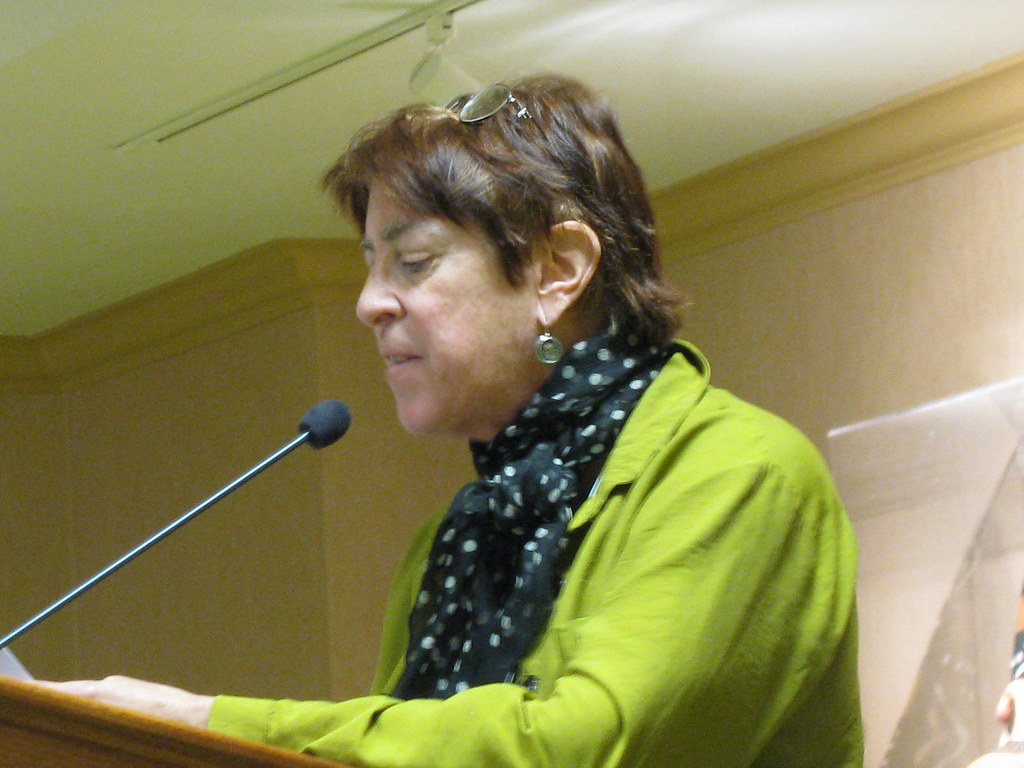 |
| John Ashbery [pic courtesy of This Recording] |
Those Lacustrine Cities
by
John Ashbery
These
lacustrine cities grew out of loathing
Into
something forgetful, although angry with history.
They
are the product of an idea: that man is horrible, for instance,
Though
this is only one example.
They
emerged until a tower
Controlled
the sky, and with artifice dipped back
Into
the past for swans and tapering branches,
Burning,
until all that hate was transformed into useless love.
Then
you are left with an idea of yourself
And
the feeling of ascending emptiness of the afternoon
Which
must be charged to the embarrassment of others
Who
fly by you like beacons.
The
night is a sentinel.
Much
of your time has been occupied by creative games
Until
now, but we have all-inclusive plans for you.
We
had thought, for instance, of sending you to the middle of the
desert,
To
a violent sea, or of having the closeness of others be air
To
you, pressing you back into a startled dream
As
sea-breezes greet a child’s face.
But
the past is already here, and you are nursing some private project.
The
worst is not over, yet I know
You
will be happy here. Because of the logic
Of
your situation, which is something no climate can outsmart.
Tender
and insouciant by turns, you see
You
have built a mountain of something,
Thoughtfully
pouring all your energy into this single monument,
Whose
wind is desire starching a petal,
Whose
disappointment broke into a rainbow of tears.
what
a simmeringly angry, threatening poem — we’ll make you Jesus
fucking Christ!
Nor
can one take short extracts from a given Ashbery poem . . . and
treat these extracts as containing within themselves the "meaning"
of the poem in question. . . .
in
Ashbery's poetry, it is usually impossible to identify the citation,
and, even when we do, such identification doesn't necessarily help us
to understand the poem. . . . Indeed, in Ashbery, almost
everything sounds like
a citation, sounds like something we've heard before or read
somewhere--but where? And that is of course one of the main features
of Ashbery's poetic: living at a moment when one's language is so
wholly permeated by the discourses that endlessly impinge on it . . .
vintage
Ashbery in its refusal to make clear whether its "theme" is
serious or comic or both. And that, the poet--a poet whose skepticism
is finally much more radical than was Eliot's-- suggests is how life
is. .
. .
Bishop's
drive . . . toward meaningful statement is characteristic of
modernism in its late phase. But Ashbery's poem is doing something
else — establishing, for one thing, a different relationship
between writer and reader, a relationship that looks ahead to the
poetics of "embodiment" as practiced by such later poets as
Charles Bernstein and Bruce Andrews, Maggie O'Sullivan and Karen
MacCormack.
from John Ashbery's Rivers and Mountains:
Civilization
and Its Discontents [excerpt]
There
is no longer any use in harping on
The
incredible principle of daylong silence, the dark sunlight
As
only the grass is beginning to know it,
The
wreath of the north pole,
Festoons
for the late return, the shy pensioners
Agasp
on the lamplit air. What is agreeable
Is
to hold your hand. The gravel
Underfoot.
The time is for coming close. Useless
Verbs
shooting the other words far away.
I
had already swallowed the poison
And
could only gaze into the distance at my life
Like
a saint’s with each day distinct.
No
heaviness in the upland pastures. Nothing
In
the forest. Only life under the huge trees
Like
a coat that has grown too big, moving far away,
Cutting
swamps for men like lapdogs, holding its own,
Performing
once again, for you and for me.
The
discipline of the apostate is often stricter than the observance of
the faithful, and Emerson is a case in point. There was a chastity
about his intellectual style, and [Oliver Wendell] Holmes [Jr]
emulated it. This is a side of the young Holmes’s personality it
has proved easy to miss. Wendell Holmes was, of course, a child of
privilege, and he was not a prig. He was sociable and well connected;
he liked to banter; in later life, he made much of his taste for
pretty women and for drink. But it is a mistake to discount — even
when he was still a student — the severity of his character as an
intellectual. Holmes was an unusually compartmentalized personality.
He knew when to work and when to play, and he never mixed his
occasions. Socially, he exhibited the gregariousness of his father;
in thought, he cultivated the solitariness of his hero. Even at
seventeen, he was a bookish young man who wrote poetry, collected
prints, and debated philosophical issues with his father at the
dinner table. And he treated those issues with a rare gravity. He
felt his father much too disposed to split the difference between
opposing views, or to fall back on conventional wisdom; he considered
most of his teachers hidebound traditionlists. He was, in the context
of his times, a student radical. . . .
There
is a neurochemistry of battle. For the men who fought at the Bloody
Angle the universe must have reduced itself that day to a place in
which killing and being killed were the only things that made sense,
a world in which any other kind of behavior lay outside the
boundaries of the thinkable.
I hope Ashbery — that man is horrible, for instance — would mock Menand for that testosterone-soaked melodramatic bullshit.












